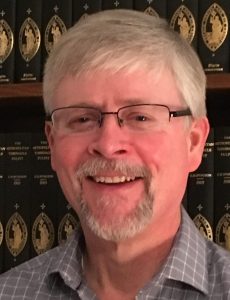Benjamin Keach is best known for introducing the regular singing of hymns in the normal worship of the church. But while this was a significant conviction and controversy in his life, it by no means defines his contribution to the cause of Jesus Christ in his generation. Keach was converted to Christ at age 15 through the preaching of Matthew Mead and began preaching himself at 18 years of age among the General Baptists before becoming a convinced Particular Baptist when he was about 28 years of age. Austin Walker in his wonderful biography of Benjamin Keach puts his life in perspective by saying,
Benjamin Keach was a second-generation Particular Baptist who, in the providence of God, lived for fifteen years after the Act of Toleration. He was an heir of the Separatist tradition and a man who vigorously maintained his views on baptism and the nature of the church after he and his fellow Dissenters had emerged from the furnace of persecution in 1689. It would be very easy to dismiss Keach as being a man who was argumentative, constantly fighting antagonists. Spurgeon was surely right when he pointed out that men like Keach were fighting not only for their identity but also for their very existence. Spurgeon observed that in his own day: “Baptists are received into the family of Christian denominations without needing to defend their existence…but in those days our brethren were despised and sneered at, and had to fight for existence.”[1]
His accomplishments include a prolific writer, a preacher and pastor for 46 years. Keach was a bold man going up against many antagonists as well as a passionate evangelist who “saw many people converted under his ministry and was instrumental in helping plant a number of churches.”[2]
Walker contends further that Keach was consistent in his godliness, patient in his sufferings, conscientious and energetic as a preacher, pastor, writer and apologist. He was a faithful and a useful man, one who was pre-eminent among his Particular Baptist brethren, and who during the last fifteen years of his life in particular, was highly respected in wider ecclesiastical circles.[3]
You might be thinking, “Why should I waste my time reading about someone who lived such a long time ago?” “Why consider the life of a pastor who lived in a world that is so different from my own that there couldn’t be anything relevant for me and my ministry?” Indeed these are excellent questions. Allow me to take a few minutes to convince you that you will be a better Christian and a more motivated pastor as a result of reading this well written biography.
It was Dr. Martyn Lloyd-Jones’ encouragement that moved me in the early years of my ministry to read and learn from the men of the past. I shall forever be thankful to him for that wise advice. Because of that advice I have read the biographies of men like George Whitefield, David Brainerd, William Carey, Charles H. Spurgeon, and J. Hudson Taylor to name a few. And what a benefit these biographies have been to my life, only eternity will reveal. Many pastors might be guilty, along with me, of reading only those who might be considered “hero” or “celebrity pastor or evangelist” of the past. While these biographies may be more exciting, we must ask ourselves if reading only “celebrity pastors” is consistent with our theology that God gives the results and the human instrument is only the means that God has chosen to accomplish His purposes? Paul warns us, “So then neither he who plants is anything, nor he who waters, but God who gives the increase” (1 Cor. 3:7). He who fails to read and study the lives of those who have trod the road to Zion ahead of him is destined to fall and stumble in some of the same pot holes which could have been avoided if he had only sprinkled some well written biographies into his reading schedule.
Therefore, I would like to commend to you the volume entitled, “The Excellent Benjamin Keach,” by Austin Walker. In spite of the large number of printed sermons and other works Benjamin Keach produced, I think it is a fair assessment of his abilities and ministry to say that he was an average man rather than a man of exceptional abilities. I cannot find any evidence that he received a university education. Christopher Hill lumps Keach in with Bunyan as being part of the disadvantaged, at least in part, because of their dissenter status in relationship to the Church of England.[4] By this I do not mean to distract from or belittle his accomplishments, but to motivate us to pursue a higher level of activity that by God’s grace might lead to a greater level of accomplishments in our ministries. Benjamin Keach’s example is both convicting and encouraging. It is convicting because we tend to excuse ourselves because we lack the ability of a Whitefield or a Spurgeon. It is also encouraging because Keach and Carey accomplished great things, through God’s blessings, because they kept their hand on the plow and plodded along in the field God had given to them in which to labor. The vast majority of us are average men and pastors. This is not meant to discourage us but to remind us that God has chosen to use the weak things of this world to confound the wise (1 Cor. 1:27).
In order to further motivate you to pick up a copy of The Excellent Benjamin Keach, and read it with enthusiasm consider with me several more specific reasons for reading this biography.
Benjamin Keach lived during the time when the Particular Baptists came into being. Furthermore he was a signer of the 1689 London Confession of Faith. Walker points out that “Keach was characterized by a great concern for the church of Christ and, in particular, he displayed a love for her peace and unity.”[5] There is no doubt that Keach was a controversialist but that must be recognized against the background of his life as a churchman. Most of his controversial writings were in defense of the church, or defining and discipling the congregation to be more fully what God had called her out of the world to be.
Many Baptist distinctives were developed and formulated during the 17th century. Keach was not born a Baptist but developed baptistic convictions in the crucible of persecution. We take these convictions for granted and fail to value them as we should. Keach’s life experience should serve to deepen our own convictions on these vital doctrines. The doctrines of believers baptism, a gathered congregation, and liberty of conscience are doctrines which were being worked out during his ministry and he contributed to their solidification among the churches. Benjamin Keach was convinced of the truthfulness of these doctrines and was ready to suffer for these if God so ordered it. The reader of this volume will receive a wealth of information on the 17th century and grow to appreciate the theological distinctives of the people called Baptists and the cost that many paid to hammer out on the anvil of life what is wheat as opposed to chaff.
Many of our churches today are far below the norm of understanding the doctrinal teaching of the Scriptures which previous generations held too vigorously. But sadly the present generation doesn’t appreciate what a church is, or what it means to be a professing Christian living in good standing with fellow members of a local congregation. Many of these issues were worked out by Keach and his fellow Baptist’s in the 17th century and we can gain a deeper understanding of them by reading the life of Benjamin Keach.
It is also interesting to observe that Benjamin Keach was throughly reformed in his theological persuasion. In the earlier years of my ministry many of my elders considered the designation “reformed” to be antithetical to the designation “Baptist”. Mr. Walker informs us that Benjamin Keach, “Regarded Martin Luther and John Owen as two of the greatest lights in the church in the past 200 years.”[6] Benjamin Keach is a wonderful example of what a reformed Christian is.
One of the primary doctrines of the Reformation was that of justification by grace through faith in the finished work of Jesus Christ. Benjamin Keach was a very effective defender of the doctrine of justification by the imputed righteousness of Christ. This is one of those doctrines of Holy Scripture that must be defended in almost ever generation. We have been blessed in this generation with massive reprinting of the writings of the Puritans and what a wealth of practical divinity is to be found among these authors. Keach was living among them and drank from these same wells and gained much insight from them. But he was blessed with wisdom not to accept all that an author might write. He was a diligent student of Scripture and sought to compare the writings of his contemporaries with the Scriptures. Keach resisted the temptation to overlook a view that was contrary to the Bible because the one holding it was a “celebrity pastor”. Benjamin Keach was willing to go up against Richard Baxter for the sake of the truth. In this Keach becomes a guide for acting according to Biblical principles and use of critical thinking as opposed to blind acceptance.
We are very likely on the eve of persecution for holding to the teachings of the Bible in our culture. Benjamin Keach is uniquely qualified to teach us how to handle ourselves in persecution since he faced it over a long period of time and continued to hold fast to the principles and doctrines of the faith in spite of the opposition. Walker records, “Though he suffered imprisonment and the indignity of the pillory, he would not compromise his convictions, but stood his ground firmly and bore his sufferings patiently.”[7] One lesson we might focus on is that, “Keach himself adopted a very ‘positive’ view toward persecution, stating that ‘persecution never does godly Christians any harm; they grow the more, not only in number but in goodness. It refines and purifies them, it purges and make them white, they grow in faith, in patience.’”[8]
The faithfulness of this precious servant of God is a wonderful motivation for us as the opposition to Jesus grows. Much of the persecution that Benjamin Keach faced was at the hands of other professed believers. Observing the present religious landscape causes many to believe that such persecution is likely on the horizon. We haven’t faced significant persecution, but it seems that the temptation to compromise is greater when we are facing off with professed Christians as opposed to hateful government officials, like our brothers and sisters in China. It is helpful to note that though Keach “was persecuted for nearly thirty years, he did not retaliate in a vengeful spirit, nor did he panic as some appeared to do in 1683 and 1685 (by taking matters into their own hands).”[9]
Benjamin Keach becomes an excellent illustration of the necessity of the pastor to be both a careful exegete of Holy Scripture and a preacher with passion to both the saints and the lost. Keach devoted himself to the careful teaching of the doctrinal content of the Bible along with the clear application of that truth to the daily lives of his hearers. It is interesting to note that Keach was at the same time one who fulfilled the work of an evangelist. A pastor who fails to preach the gospel and press it home to his hearers is not likely to be a man used of God for advancing His kingdom. We are plagued with thinking that some men are gifted to teach and some are gifted to be evangelists. Both of these requirements for the pastor are presented by Paul in his last epistle to Timothy in 3:16-4:5. Let us not give into the temptation of avoiding one of the vital responsibilities of the pastor. An average man in terms of education and giftedness such as Benjamin Keach worked hard at fulfilling both and becomes a vivid lesson to all of us.
Austin Walker has done the church a great service by presenting Benjamin Keach warts and all. His evaluation of Keach in the hymn singing controversy is a tremendous reminder that we can have the proper theological position but be guilty of handling ourselves in a way that might bring reproach on the name of our blessed Savior. All who read the life of Benjamin Keach as presented by Walker will benefit far beyond the facts that have been given in this article.
[1] Austin Walker, The Excellent Benjamin Keach (Ontario, Canada: Joshua Press, 2015), 339.
[2] Walker, Keach, 9.
[3] Walker, Keach, 378.
[4] Christopher Hill, A Tinker and a Poor Man (New York, Alfred A. Knopf, 1989), 135-43.
[5] Walker, Keach, 380.
[6] Walker, Keach, 365.
[7] Walker, Keach, 383.
[8] Walker, Keach, 106.
[9] Walker, Keach, 137.





























